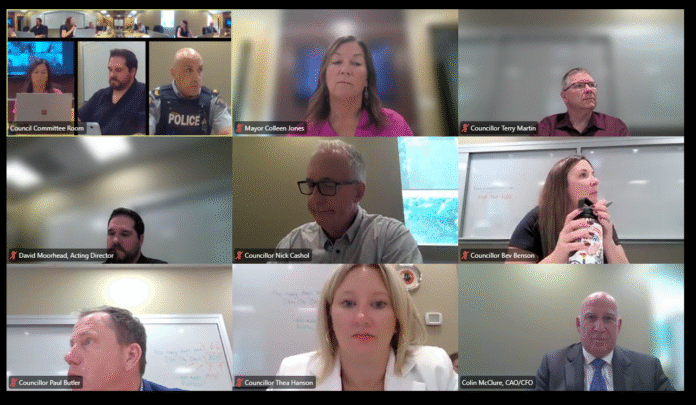Trail’s police chief says the city has a “very mild issue” with open drug use compared to other places in BC, and he believes they have reached the limit of what can be accomplished with enforcement.
RCMP Sgt. Mike Wicentowich made the comments in response to questions this week from city councillor Nick Cashol, a former local police officer himself.
Wicentowich said Trail faces similar issues as other communities, although it is more pronounced than in outlying areas served by his detachment because the city is home to more services for the local homeless population.
He said the opening of a new shelter has greatly reduced open drug use, because people who might have done so before are now housed and have the option of supervised use at the shelter.
“Trail has a very mild issue compared to most communities if you do any type of travelling,” he said. “It’s still an issue, however we don’t have the same level of violence or the same density as a lot of other cities.”
Cashol disagreed. “I think we’re facing a new normal: active, persistent, daily drug use that I’ve seen,” he said, asking how council could help press for increased enforcement.
Wicentowich, however, maintained that Trail is better off than larger centres with much worse problems and that increased enforcement probably isn’t the answer.
“I don’t think we can do more enforcement than we already are,” he said. “We have exhausted the capacity of the law to deal with this issue. We’ve hit a hard wall with the effectiveness of the tools we have now.
“I’ve seen much worse. I’ve seen much more violence. We’re not in the Okanagan or Lower Mainland where drug dealers are killing each other and bodies are showing up.”
Under legislation adopted in BC in 2023, possession of 2.5 grams or less of certain drugs has been decriminalized. Wicentowich says as a result, if police are called to deal with someone using drugs in a public place — who is not otherwise commiting a crime — their approach is to offer referrals to services or treatment. If someone refuses, they can ask be asked to leave. People nearly always comply, he said.
If someone is intoxicated beyond the ability to care for themselves, they will be jailed until sober. However, often when police are called, it’s because someone has passed out. Police deliver Narcan and follow up with paramedics before leaving the scene.
Prior to decriminalization, police routinely seized small amounts of drugs found on a person, but now they have to return those drugs unless there is some other reason not to, Wicentowich said.
“Simply arresting people in the park for using drugs is not the first step,” he said. “It’s not supported by legislation. We’re not going to arrest our way out of this issue. It’s a social issue.”
Wicentowich said more housing and a dedicated safe use site would not stop drug use, but would make it less visible. Another advantage to a supervised site is that it wouldn’t require emergency responders to attend multiple times per day.
“We have to consider a nuanced response,” Wicentowich said. “The government has decided a hammer is not being used on the drug population anymore. It’s more of a scalpel. We’re trying to follow suit. It’s been very challenging.”
Although some provisions in the decriminalization legislation have already been rolled back, Wicentowich said he expects that when the matter comes up for renewal in 2026, there may be further modifications, but he doesn’t expect it to be dropped entirely.
While he said treatment beds can help, they are not a perfect solution either. He cited the example of one local offender who “absconded” from a drug treatment program.
Wicentowich also said he is hopeful the impending addition of a two-officer crime reduction unit in Trail will make a “significant difference” in keeping prolific offenders in check.
“I think there’s more to worry about than homeless people using drugs,” he said. “If we’re going to focus all our resources on that, I don’t think it’s very effective.”
Wicentowich added that homeless people often take the brunt of public concern, but drug use isn’t limited to those on the street, and dealers aren’t necessarily homeless.
Be the first to know! Don’t miss out on breaking news and daily updates in your area. Sign up to MyKootenayNow News Alerts.






